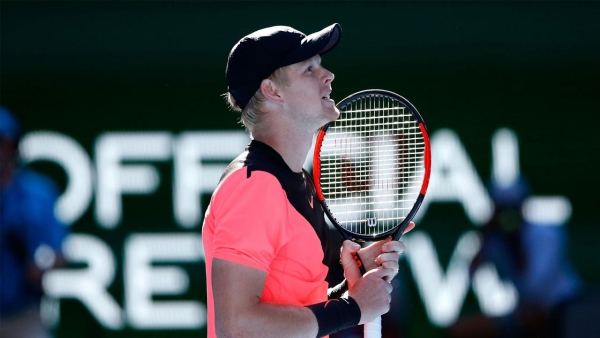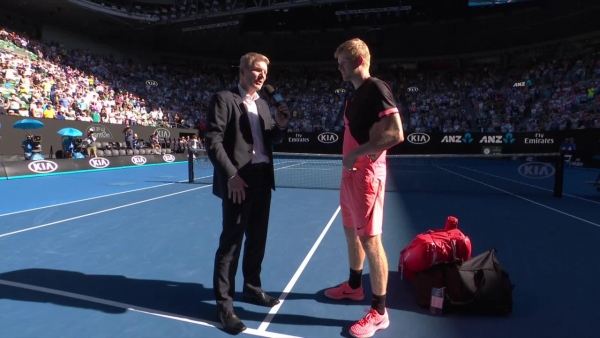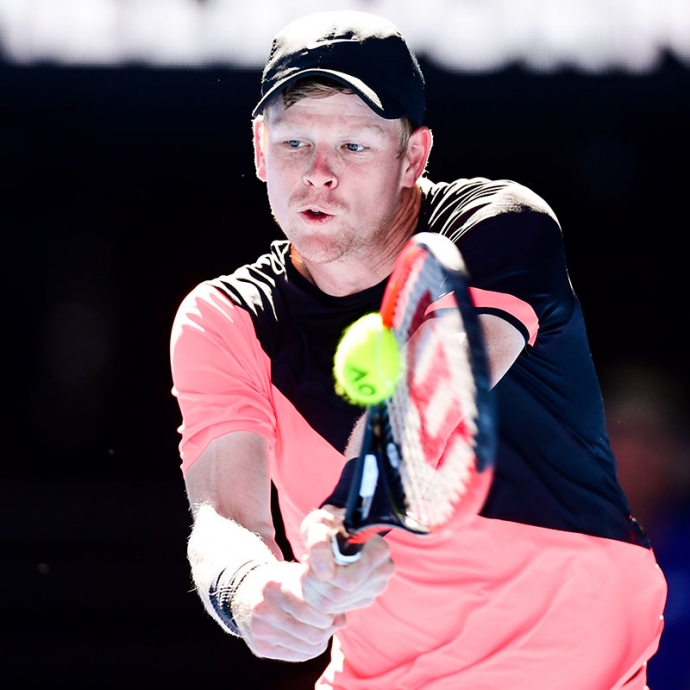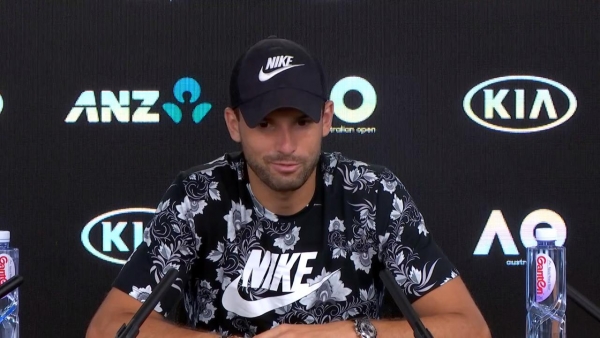Tim Henman smiled paternally from the Presidents’ Box. He had just watched Kyle Edmund do what he had never managed: Edmund had reached the semifinals of Australian Open 2018 by outplaying and out-nerving Grigor Dimitrov.
The 23-year-old from Beverley in Yorkshire had been stronger between the ears and between the lines than the world No.3 to win 6-4 3-6 6-3 6-4. Not only that, it only took two hours and 49 minutes, one of Edmund’s quickest matches of the tournament.
MORE: All the latest scores and results
“It’s an amazing feeling; I’m very happy,” Edmund said, still looking slightly stunned. “With these sort of things, you are so emotionally engaged that you don’t really take it in, you don’t really enjoy it. So at the end of a hard match, I just tried to enjoy the moment.
“Grigor’s played some hard matches – he obviously played a high level match against Nick [Kyrgios] so I knew it was going to be tough. I had a bit of a dip in that second set – it was poor tennis at some point – but in the third set I managed to break him right at the end. Had a little blip in the fourth set but really just held my nerve in that last game and just prayed that last ball was out.”
It may not have been a match to go down in the record books or on the highlight reels. There was far too much at stake for that. For both men, this match meant everything and you could almost hear the nerve endings twanging like knicker elastic.
Dimitrov, the champion of the ATP World Tour Finals last November, is desperate to make his mark of a Grand Slam championship. He has all the talent in the world but as he took to the court on Tuesday, he had only reached two major semifinals – here last year and Wimbledon in 2014 – in 29 attempts. It was not much of a return on his investment; he wanted more.
Time and again, the pressure had got to him: he knew he was good enough to beat anyone but proving it was the problem. But when he won in London, defeating David Goffin in three tight sets, he thought – he hoped – he had finally found a solution to the problem. He had won a big title. This must be the start of something big. At last.
But in Melbourne, he has found new pressures to face: he is the world No.3, he is the ATP Finals champion – now he was expected to get to the last four. His seeding dictated that anything less would be a failure. The pressure never goes away.
On the other side of the net, Edmund was setting sail into uncharted waters. He had never reached a Grand Slam quarterfinal before (his best finish was the fourth round at the US Open two years ago) but having taken to the fight to Dimitrov in the Brisbane quarterfinals for two and a half sets until he rolled his ankle, he knew that this was a winnable match.
That Brisbane encounter was at the start of the month and Edmund and his coaching team had long since established what he had done well and what he needed to work on to break down the Dimitrov defences. This, then, was a chance, however slim. And they do not come around very often at the Grand Slam tournaments.
Like Dimitrov, Edmund has been trying to find a way to keep his belief alive when the pressure mounts. He struggled with the problem last year but now helped by Fredrik “Fidde” Rosengren, once the coach to Magnus Norman and Robin Soderling, he seems to have found a new inner steel. Now, when the chips are down, Edmund backs himself and his strengths and finds a way to win.
That won him the first set. From a confident start, breaking the Bulgarian’s serve in the opening game, the Briton was reeled in to 3-3. No dramas. Edmund stuck to his plan and broke again for 5-4 and even when he found himself staring at break points as her served for the set, he still had faith in his serve and that forehand. And a service winner wrapped it up.
Tension stifled the life out of the second set – and Dimitrov edged it – and a Dimitrov double fault decided the third. The error gave Edmund the break of serve and a Yorkshire service winner gave him the set.
By the time they had exchanged breaks of serve in the fourth set and Edmund had levelled up the score to 4-4, both coaches looked as if they were about to explode. On the court, Dimitrov looked fraught and fractious – this was not in the script. This was not how he had planned it. Meanwhile, Edmund … well, who knew what he was thinking. Yorkshiremen tend to be blokes of few words and whatever emotions he was feeling, he was keeping them well hidden.
Even when he got to break point on a rare Hawk-Eye fluff (the computer first called Dimitrov’s backhand in and then changed its mind and announced it out), Edmund did not blink. And when he got the break with another Dimitrov backhand error, there was just a quiet fist pump to his box.
Yet when Edmund did finally get the win – yet another backhand error from the Bulgarian – he could not believe it. He put his hands over his eyes, he sat in his chairs and just shook his head.
There is emotion lurking within that muscular frame of Edmund’s. And now, with Rosengen’s help, he has learned to harness it, use it and when it all pays off, enjoy it.



